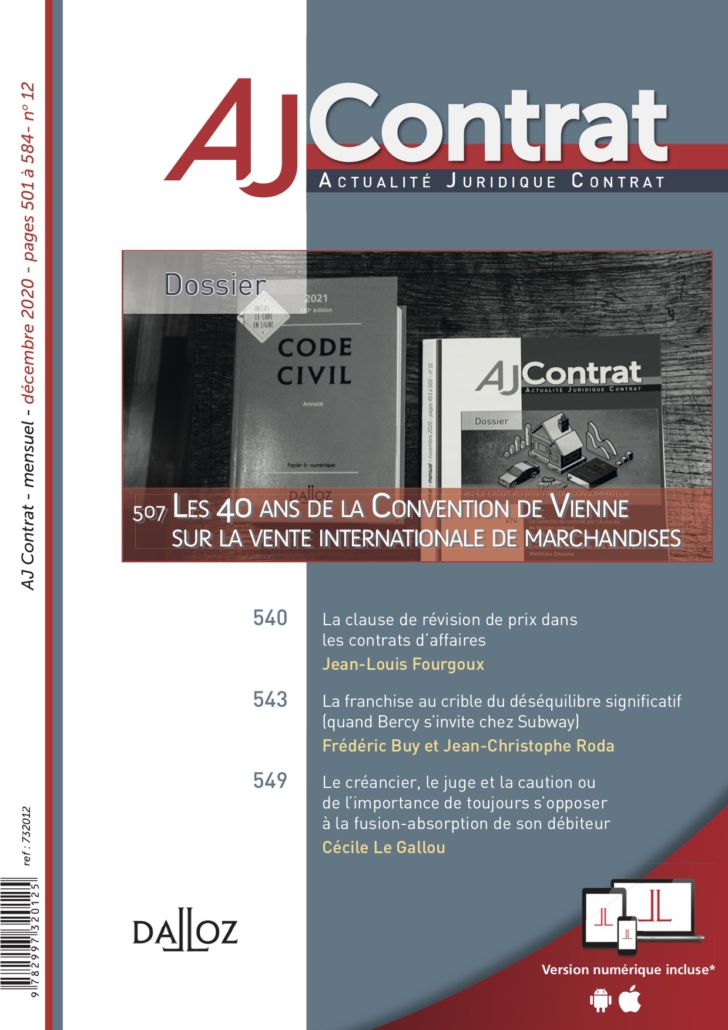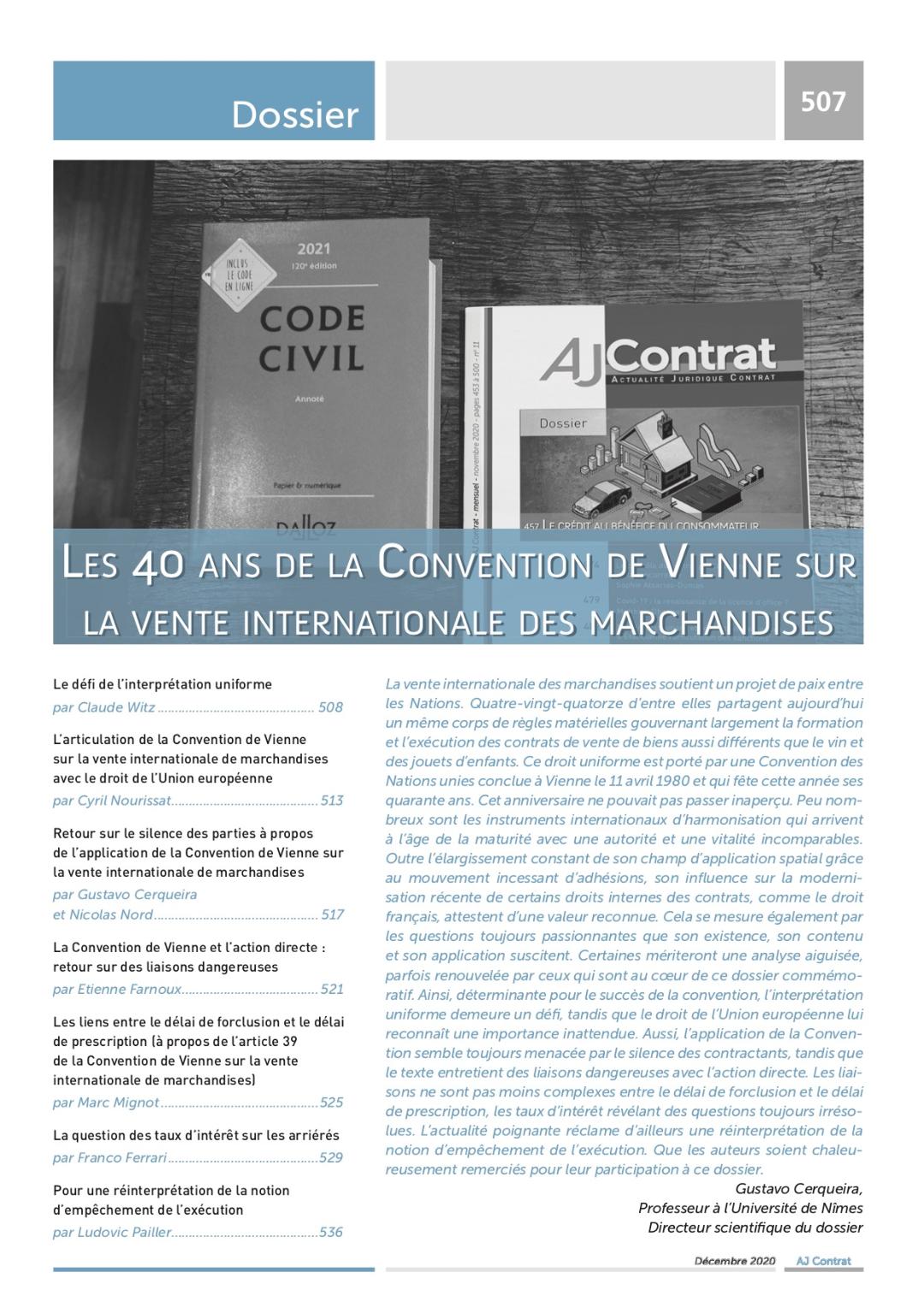Views
Nothing Found
Sorry, no posts matched your criteria
News
Just Published: Kahl/Weller, Climate Change Litigation – A Handbook

From the publisher’ site:
About Climate Change Litigation
It gives an overview of important jurisdictions in the field of climate change litigation, including the US, Canada, Australia, the UK, France, the Netherlands, Italy, Brazil and Germany.
The handbook provides answers and ideas both to scholars and practitioners in the field. Furthermore, it is guaranteed to provide an overview of the latest news in cases and progress in the field of climate change litigation.
Table Of Contents
INTRODUCTION
CLIMATE CHANGE AS A CHALLENGE FOR GLOBAL GOVERNANCE, COURTS AND HUMAN RIGHTS (Voigt)
PART 1
FUNDAMENTAL QUESTIONS
A. Liability for climate damages, sustainability and environmental justice (Kloepfer/Neugärtner)
B. Climate damages and the ‘Polluter Pays’ Principle (Rehbinder)
C. The role of courts in climate protection and the separation of powers (Payandeh)
D. Climate change and duties to protect with regard to fundamental rights (Gross)
PART 2
PROCEDURAL ISSUES AND CONFLICT OF LAWS
E. Arbitration proceedings (Lennarz)
F. Conflicts of jurisdiction and the applicable law in domestic courts’ proceedings (Kieninger)
PART 3
STATE LIABILITY UNDER INTERNATIONAL AND EUROPEAN LAW
G. Environmental liability in international law (Wolfrum)
H. The international law and policy implications of climate change litigation: sustainable developments in international investment law and policy related to renewable energy, climate change mitigation and adaptation (Cordonier Segger/Arvan/Byron/Srinivas)
I. The Paris Climate Agreement and liability issues (Franzius/Kling)
J. Liability of EU Member States under EU law (Purnhagen/Saurer)
PART 4
CLIMATE CHANGE LITIGATION – NATIONAL REPORTS
K. Climate change litigation in the United States (Farber)
L. Climate change litigation in Canada (Jodoin/McGinn)
M. Climate change litigation in Brazil (Wedy)
N. Climate change litigation in Australia (Bell-James)
O. Climate change litigation in the United Kingdom (Ohdedar/McNab)
P. Climate change litigation in Italy (Butti)
Q. Climate change litigation in France (Epstein/Deckert)
R. Climate change litigation in the Netherlands – the Urgenda case and beyond (Van der Veen/De Graaf)
S. Climate change litigation in Germany (Weller/Nasse/Nasse)
PART 5
LIABILITY FOR CLIMATE DAMAGES – GERMANY AS AN INTERNATIONAL PIONEER?
T. Liability for climate damages under the German law of torts (Wagner/Arntz)
U. Liability for climate change damages under the German Environmental Liability Act (Nitsch)
V. Climate protection and compliance in German corporate law (Habersack/Ehrl)
W. Investor-led action for climate and business sustainability (Duve/Hamama)
X. Liability for climate damages under the Environmental Damage Act (Kahl/Stürmlinger)
Y. The role of non-governmental organizations for climate change litigation (Verheyen/Pabsch)
PART 6
CONCLUSIONS
LIABILITY FOR CLIMATE DAMAGES –
SYNTHESIS AND FUTURE PROSPECTS (Kahl/Weller)
Autonomous v. Nationalistic Interpretation of the 1958 New York Convention
The New York Convention of 1958 owes much of its success to being an international convention setting forth uniform rules. Its uniform enforcement regime not only lowers the parties’ transaction costs of identifying under which circumstances an award will be recognized and enforced across jurisdictions; it also ensures that States cannot justify the failure to comply with their obligations under the New York Convention by reference to domestic law. Still, the courts of different contracting States apply the Convention differently. Oftentimes, this is due to the erroneous understanding of concepts employed by the drafters of the Convention.
To shed the light on this complex matter, on 21 January 2021 the NYU Center for Transnational Litigation, Arbitration, and Commercial Law will host a conference on Autonomous v. Nationalistic Interpretation of the 1958 New York Convention. In this context, a group of internationally renowned scholars will address core issues such as: ‘Autonomous Interpretation of the New York Convention’ (Franco Ferrari); ‘The notion of an arbitral award’ (Burkhard Hess); ‘Arbitration agreement – Scope issues’ (Dennis Solomon); and ‘Arbitrability’ (Winnie Ma).
More information on this event is available here.
Just published: AJ Contrat on the 40th Anniversary of the CISG

The new issue of the AJ Contrat (12/2020) Dalloz contains a special dossier to mark the 40th Anniversary of the United Nations Convention on Contracts for the International Sale of Goods (CISG), prepared by Gustavo Cerqueira, full professor at the University of Nîmes, France (in French).
The dossier foreword reads as follows (English translation): “The international sale of goods supports a peace project between Nations. Ninety-four of them share today the same body of substantive rules largely governing the formation and the performance of contracts for the sale of goods as diverse as wine and children’s toys. This uniform law is supported by the United Nations Convention concluded in Vienna on April 11, 1980 (the CISG), which celebrates in 2020 its forty years. This anniversary could not go unnoticed. Few are the instruments on international harmonization that are coming at the age of maturity with such unparalleled authority and vitality. In addition to the constant expansion of its geographical scope of application through the increasing number of accessions, its influence on modernization of certain domestic contract laws, such as the recent legislative reform passed in France, attests to its importance. This can also be measured by the always fascinating questions that arise regarding its existence, its content and its application. Some of them will deserve a sharp analysis, sometimes renewed by those who are participating in this commemorative dossier. Thus, crucial to the success of the Convention – the uniform interpretation remains a challenge, while European Union law recognizes an unexpected importance to the Convention. Also, the CISG’s application still seems to be threatened by the silence of the contractors, while the Convention has dangerous liaisons with the French action directe. The links are no less complex between the foreclosure period and the deadline prescription period, while interest rates reveal unresolved issues. Last but not least, poignant current events call for a reinterpretation of the notion of impediment to perform”.
The dossier contains the following articles (titles have been translated into English):
The challenge of uniform interpretation, by Claude Witz (Saarland University)
The CISG’s articulation with the European Union Law, by Cyril Nourissat (University of Lyon 3)
Back on the parties’ silence about the CISG’s application, by Gustavo Cerqueira (University of Nîmes) and Nicolas Nord (University of Strasbourg)
The Vienna Convention and the action directe: back on dangerous liaisons, by Etienne Farnoux (University of Strasbourg)
The links between the foreclosure period and the deadline prescription period (about CISG’s Article 39), by Marc Mignot (University of Strasbourg)
The issue of interest rates on arrears, by Franco Ferrari (New York University)
For a reinterpretation of the concept of impediment to perform, by Ludovic Pailler (University of Lyon 3)
The full table of contents is available here (in French).



